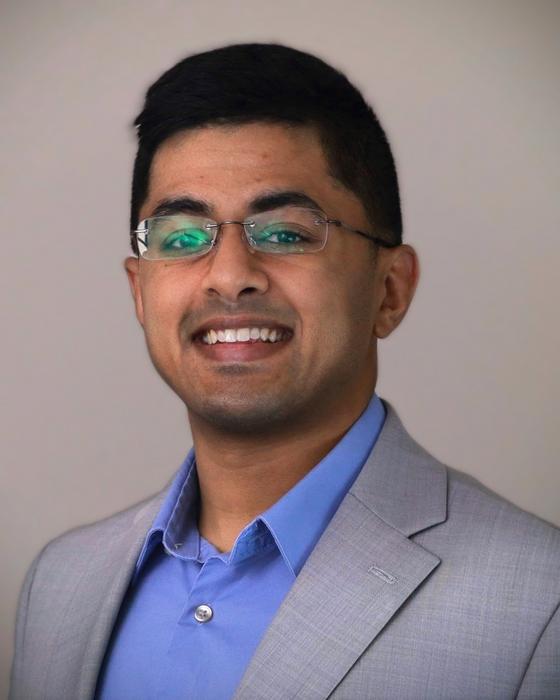The Society for Laboratory Automation and Screening (SLAS) has announced the recipient of the esteemed 2025 SLAS Graduate Education Fellowship Grant: Vasumitra “Vasu” Rao, a graduate student from the University of Michigan, currently navigating the rigors of a Ph.D. program in Biomedical Engineering. This recognition not only underscores Rao’s potential as a future leader in the realm of quantitative biosciences but also highlights the significant strides being made at the convergence of artificial intelligence, laboratory automation, and microbiology.
Rao’s research is set to traverse uncharted territories within the field, particularly in understanding non-model bacteria, such as Streptococcus mutans, which is pivotal in the development of dental caries. Through his project, entitled “Multimodal Characterization of Microbial Dynamics using Artificial Intelligence,” he aims to bridge critical gaps in existing microbiological knowledge by employing cutting-edge computational methods. With the SLAS fellowship funding, Rao is poised to delve deeper into his work under the mentorship of Dr. Paul Jensen, an Assistant Professor of Biomedical Engineering at the University of Michigan and head of the Jensen Lab.
At the core of Rao’s research lies an innovative application of advanced machine learning techniques, specifically neural ordinary differential equations (Neural ODEs) and generative adversarial networks (GANs). These methodologies are not merely academic exercises; they represent a paradigm shift in how microbial behaviors can be modeled and predicted. By leveraging machine learning, Rao aims to simulate conditions that influence microbial growth and biofilm development, thereby providing invaluable insights for potential applications in drug discovery and microbiome engineering.
The implications of Rao’s research extend beyond academia and into practical realms that touch everyday life. By creating a predictive framework for understanding microbial dynamics, this work could lead to groundbreaking advancements in developing therapeutic strategies for oral health, as well as various disorders linked to microbial imbalances. The integration of AI in this research could pave the way for precision medicine, where treatments are tailored based on individual microbiome composition.
Throughout his academic journey, Rao has showcased a mindset geared toward progressive learning and collaboration. He is determined to enhance his expertise in automated science and systems microbiology while honing his ability to communicate complex scientific ideas effectively. He acknowledges the vital role that engagement with the SLAS community will play in his professional development, aiming to glean insights from seasoned scientists to navigate the intricacies of his field.
Winning the SLAS Fellowship represents more than financial support for Rao—it signals validation of his work and ambitions. In an interview, he expressed that this accolade motivates him to establish and pursue higher professional goals, affirming his belief in the power of community and collaboration within scientific endeavors. Rao’s proactive approach to engaging with the scientific community indicates a broader trend among researchers today who seek not just to contribute individually but to amplify collective progress.
The SLAS Graduate Education Fellowship Grant was established to foster educational opportunities for exceptional graduate students who are focusing on areas pertinent to laboratory automation and life sciences research and development. The grant has specific criteria, emphasizing originality, quality of research, and the capability of the student’s institution to support their work. This structured evaluation process ensures that the fellowship reaches those whose research endeavors align with the mission of advancing laboratory science and technology through the nurturing of the next generation of scientists.
Since its inception in 2015, the SLAS Fellowship Grant program has significantly impacted the landscape of laboratory science, promoting innovation that propels research forward while actively engaging students in meaningful scientific inquiries. It exemplifies a commitment to developing talent in a complex and rapidly evolving field, reinforcing the value of education and collaboration in scientific advancement.
The importance of such support structures cannot be understated, especially in fields that are often underfunded or overlooked. Research funding not only facilitates the continuation of vital projects but also empowers students like Rao to explore avenues previously considered too speculative or high-risk. This funding is critical in driving significant breakthroughs that can change the fabric of scientific understanding and enhance the overall health of populations.
By investing in emerging researchers, organizations like SLAS are not merely supporting individual projects— they are investing in the future of science as a whole. Each contributing student has the potential to affect positive changes that resonate through the scientific community and beyond, ultimately enhancing methodologies and innovations that address real-world issues.
As Rao continues on his academic path, the implications of his work resonate widely. His research stands as a testament to the capabilities of modern science and technology, illustrating the potent fusion of artificial intelligence with microbiological studies. The findings can significantly impact public health by laying groundwork for new approaches to treating microbial infections and understanding biofilm dynamics—factors that hold substantial sway in various clinical outcomes.
The scientific community must recognize the vibrancy of new ideas that scholars like Rao bring to the table. As research endeavors become increasingly interdisciplinary, the collaboration between fields such as biomedical engineering, machine learning, microbiology, and automation will be paramount in shaping the advancements of tomorrow. The innovations developed will not only redefine laboratory practices but also enhance our understanding of complex biological systems, fostering a future where health challenges may be tackled with unprecedented efficacy.
In conclusion, the recognition of Vasumitra Rao by SLAS is more than an endorsement of his work; it is a celebration of the potential that lies at the crossroads of technology and biology. As he delves into his research on microbial dynamics, the scientific community watches with great anticipation, as each step forward in this pioneering project could redefine our understanding of microbiology in the context of modern science.
Subject of Research: Multimodal Characterization of Microbial Dynamics
Article Title: Vasumitra Rao Awarded 2025 SLAS Graduate Education Fellowship Grant
News Publication Date: [Date Not Provided]
Web References: [Not Provided]
References: [Not Provided]
Image Credits: Vasumitra “Vasu” Rao
Keywords: Life sciences, Biomedical research funding, Education research




